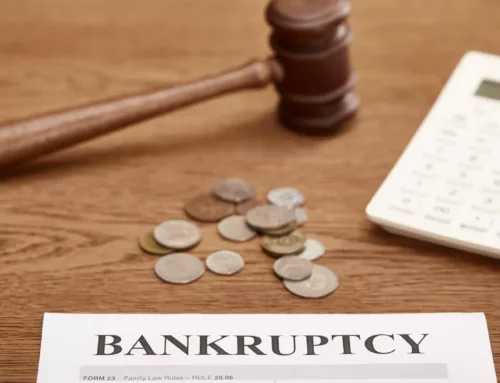If you are planning to file for bankruptcy, there are several things that you should know. There are different types of bankruptcy afforded by the bankruptcy code, each for a specific circumstance. You begin the bankruptcy proceeding when you file your bankruptcy petition.
When you decide on which bankruptcy chapter is the right choice for you, you should take into consideration the type of debt that you owe. Keep in mind that not all types of debt are dischargeable. Dischargeable debts include credit card bills and medical bills. On the other hand, debts that are not dischargeable include child support, alimony, and secured debt.
The bankruptcy court assigns a trustee to manage the bankruptcy case. When debtors file for bankruptcy Chapter 7 (or liquidation bankruptcy), the responsibilities of the bankruptcy trustee include examining the paperwork for the petition in bankruptcy, checking supporting documents submitted by filers, and selling assets to pay off certain debts. To prevent any legal issues during the bankruptcy process, it is important to seek legal advice from reliable Wyandotte bankruptcy attorneys.
Understanding the roles of a bankruptcy trustee

Even though the trustee in bankruptcy must be fair to the debtors, their interests are not always in sync. As a result, the extent to which the trustee will assist you will be determined by the bankruptcy trustee in question.
In filing Chapter 7 bankruptcy, the main responsibilities of a trustee are as follows:
– Evaluating the filing of a bankruptcy petition
– Assessing the debtor
– Managing property sales
– Preventing security interests or preferential transfers
Evaluating the petition for bankruptcy
Bankruptcy filing includes filling out a bankruptcy petition as well as other bankruptcy forms and paperwork. When filing for bankruptcy, you need to provide financial information regarding your debts, assets, monthly income, and the condition of your finances. Also, you probably have to submit the trustee certain documents that validate the details you provided in your paperwork, such as tax returns and pay stubs.
Here, the main duty of a trustee is to look over your petition in bankruptcy and double-check the details and calculations within your financial documents and other third-party sources.
Assessing the debtor
The trustee must arrange a meeting of creditors and ask you questions about the documents you provided while you are under oath. You are required to attend the creditors’ meeting about a month after you file bankruptcy. Even though creditors may question you during the hearing, they rarely appear in these hearings. That is unless they believe you are concealing assets.
Managing property sales
The trustee is also in charge of selling assets that the debtor is unable to keep. This includes allocating these proceeds to creditors.
In bankruptcy Chapter 7, you may exempt a certain amount of your assets such as household furnishings and qualified retirement plans. The assets you may protect will be determined by the exemption statutes in your state.
For instance, if you own a nonexempt asset, the bankruptcy trustee will sell whatever is beyond the value allowed in your state. Before you consider filing bankruptcy, you should figure out first what will happen to your properties. Experienced Wyandotte bankruptcy attorneys will help you understand bankruptcy laws that cover these exemptions.
Keep in mind that you do not have an automatic right to have your bankruptcy case dismissed and the bankruptcy judge would not do so simply because you were unaware that the bankruptcy trustee will sell your asset.
If you do not own any nonexempt asset, the trustee will make a report indicating that your bankruptcy case is a “no-asset” case, where no distribution to creditors will be made. Otherwise, you and your bankruptcy lawyer will arrange with the bankruptcy trustee to turn over any property.
Preventing security interests or preferential transfers
Trustees can also prevent security interests or preferential transfers that have been improperly executed. Before filing a bankruptcy petition, if you transferred an asset to someone or paid off creditors you prefer over others, the bankruptcy trustee may be able to prevent these and get the asset or money back to distribute to other creditors.
If the creditor did not properly establish a lien on your security interest, the trustee in bankruptcy may prevent it and sell the asset free of the lien. However, this does not usually happen. It is most likely to happen only if the creditor is a family member or someone unable to record the lien.
Consult with Wyandotte bankruptcy attorneys
It is not easy to deal with debt and financial problems on your own. Bankruptcy filings help you have a fresh start with your finances. This is why having an expert to assist you on how to file and during the bankruptcy procedure is important. Contact our Wyandotte bankruptcy attorneys at Hammerschmidt Stickradt & Associates for a free consultation.



